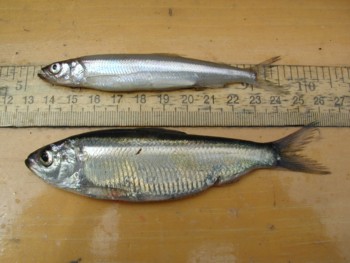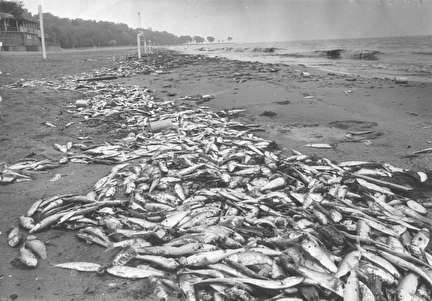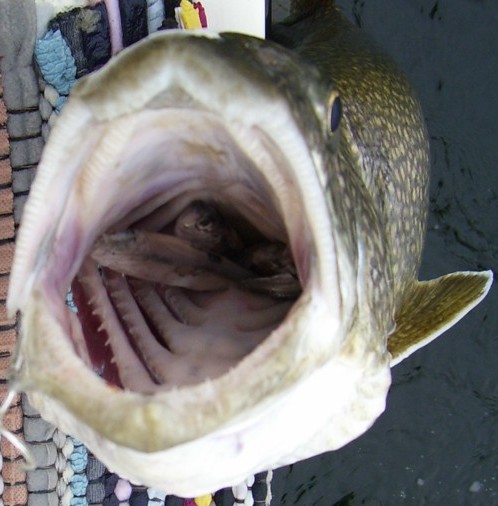Alwives, |
Good or bad, boom or bust, alwives have arrived in Lake Champlain! |
    |
| Another alien species could be in Lake Champlain BURLINGTON, Vt. -- Vermont fisheries biologists have discovered what they believe is another alien invader in Lake Champlain that could alter the lake's ecosystem. Fisheries biologist from the Vermont Fish and Wildlife Department turned up what they believe is an alewife during routine sampling this month. Because it's similar to several other fish species found in Lake Champlain, the biologist haven't conclusively identified it as an alewife, but they're almost certain that's what it is. "We haven't done a genetic analysis," said biologist Shawn Good, "but we've dissected it and compared some key features, both internally and externally. There's really nothing else it can be." Alewives were discovered in Vermont 1997 in Lake St. Catherine in Rutland County, likely escapees from a bait bucket. Good said the fish found in Lake Champlain was virtually identical to several samples from Lake St. Catherine. "It's just one fish we've found so far," Good said, "so we don't know if we have a population established yet." The fish found in Champlain was discovered between Isle La Motte and Alburg. It is unlikely that it came from Lake St. Catherine, but Canadian authorities have discovered similar fish in the northern parts of Missisquoi Bay and are awaiting genetic testing to determine the species of those fish. Alewives are primarily plankton eaters, and the concern is that once established in Lake Champlain, they'll compete with other fish, like smelt, for food. Smelt are an important food source for a number of larger fish, including trout, salmon, walleye and bass. Alewives in the Great Lakes have also been observed eating eggs and fry of native fish. In addition, biologists have implicated alewives in a disease that affects trout and salmon, known as early mortality syndrome. As food, alewives are not as nutritious for predators as the fish they muscle aside. Lake Champlain fisheries biologist Bernie Pientka said he hopes Lake Champlain anglers will keep an eye out for alewives and let the department know if they find more. "They're difficult to catch, so I'd watch out for them in the stomachs of other fish," Pientka said. "If they're pretty fresh, not digested or anything, we'd like to take a look at them." |
| Back to the main page |